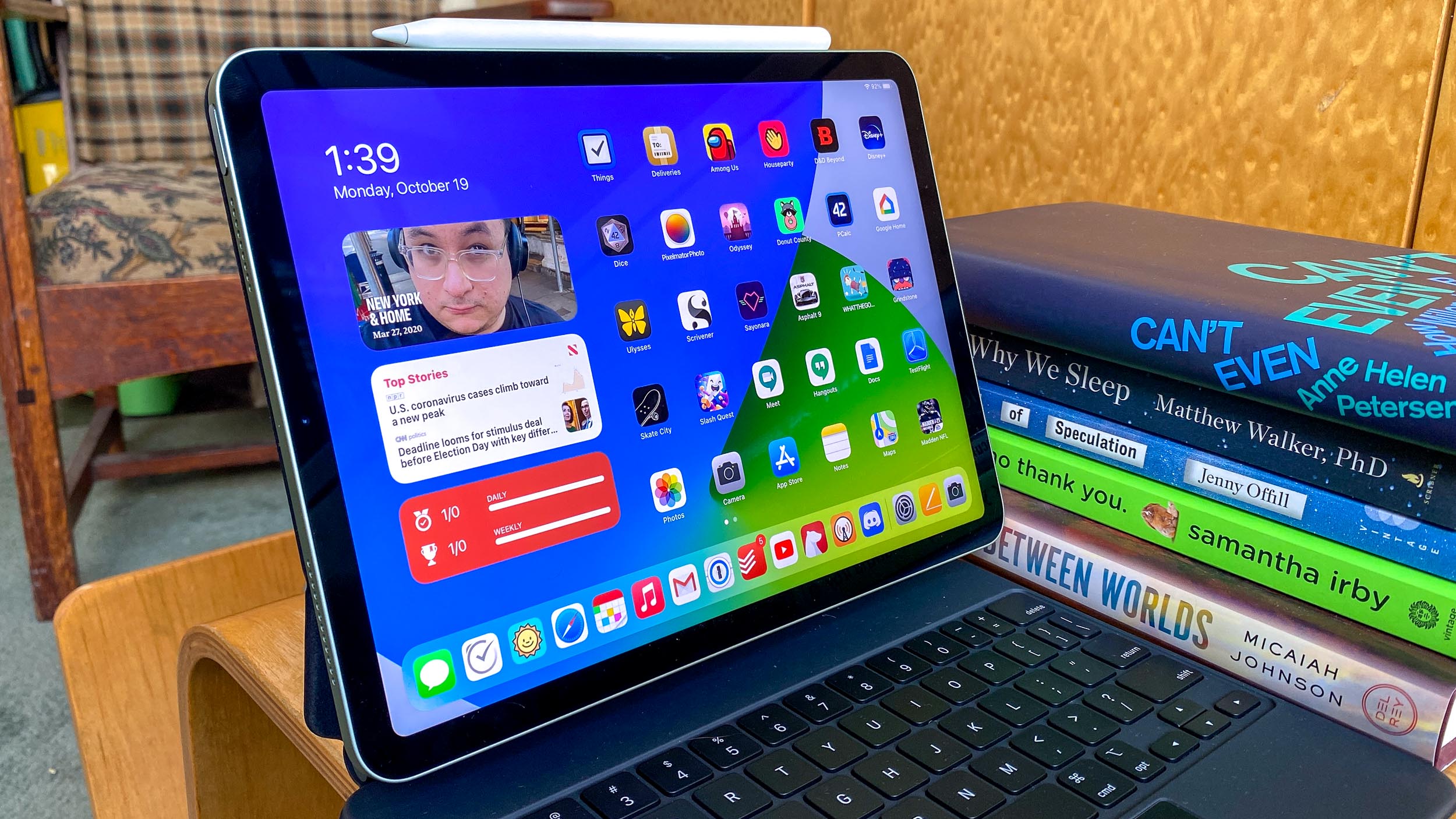How to install a VPN on an iPad
Learn how to buy, download, and install a VPN on your iPad in this simple how-to guide

There are many reasons that users around the world are using the best VPN services. They provide anonymity while online, they enable you to access geo-blocked content from around the world, and they can be used to thwart ISP throttling and DNS filtering.
The top VPNs can be downloaded on almost all operating systems and devices, but in this article we look specifically at how to buy, download, and install an iPad VPN. We love using VPNs on iPads because the apps are just as powerful as their desktop siblings, but boast simple and easy-to-use mobile interfaces.
In this article, we’ll use ExpressVPN as an example, but the steps should be more or less the same with all providers.
Downloading a VPN for iPad
Downloading a VPN app is free and can be done before you’ve created an account. The easiest way to get started is to head to your provider’s website, ExpressVPN in our case, and find the iPad or iOS installation page.
From here, you’ll be directed to the ExpressVPN page on the App Store. Click on “Get,” enter your password or use Touch ID or Face ID, and watch the app quickly download and install itself on your device.
It’s a quick and straightforward process because VPNs typically don’t take up a lot of space. The ExpressVPN app is only 25 MB in size, which is ideal if your iPad has minimal built-in storage or if you’re running low on space.
Once the app is downloaded on your device, you can proceed to the next step, which is creating an account.
Creating a VPN account
Once you’ve downloaded a VPN app, open it and you’ll realize you need to log in if you want the app to be functional. So it’s time to create an account.
Rather than “buying” a VPN with a one-time purchase, most platforms require you to create an account and subscribe to their service for a recurring fee. Fortunately, these plans are highly affordable, typically ranging between $2 and $8 per month.
ExpressVPN charges a reasonable $6.67 a month, and to get that you need to sign up for a year-long plan through Tom’s Guide and claim the three months free eligible for all readers. However, every customer gets a 30-day money-back guarantee to test the service.
In order to create an account, you’ll need to provide information such as your name, an email address, and a payment method. If total anonymity is your goal, you can always pay by Bitcoin and use a pseudonym when signing up. In fact, ExpressVPN provides a huge number of payment options for new customers, which is something we appreciate a lot.
Installing a VPN on your iPad
Now you’ve created your account, you can log in to the app on your iPad. Once you’re in, you’ll need to accept your provider’s privacy and data usage policy and approve the necessary VPN protocol configuration on your iPad—which is as simple as clicking “allow.” Most VPN providers will also ask for permission to send you notifications, so you will have to allow or deny this request as well.
Once these quick administrative steps are complete, you’re ready to connect to the VPN! Simply choose a location you want to route your internet through and press connect. The exact mechanism of connecting varies from app to app, but it’s intuitive and clearly explained in almost all cases.
The best iPad VPN available
We chose ExpressVPN to use as an example because we believe that it’s the best service on the market. In our testing, ExpressVPN was one of the fastest VPNs on iPad and unblocked sites such as Netflix, Disney+ and Amazon Prime without issue. No logs are kept of your VPN usage, and ExpressVPN uses some of the strongest encryption settings in the business.
Get instant access to breaking news, the hottest reviews, great deals and helpful tips.

Darcy is a freelance copywriter, and a candidate for the dual master's program between the Paris Institute of Political Studies (Sciences Po) in France and Peking University in Beijing, China. His academic and professional areas of interest include human rights and development, sustainable agriculture and agroecology, Pacific Islands diplomacy, and Sino-Australian relations.
 Club Benefits
Club Benefits






